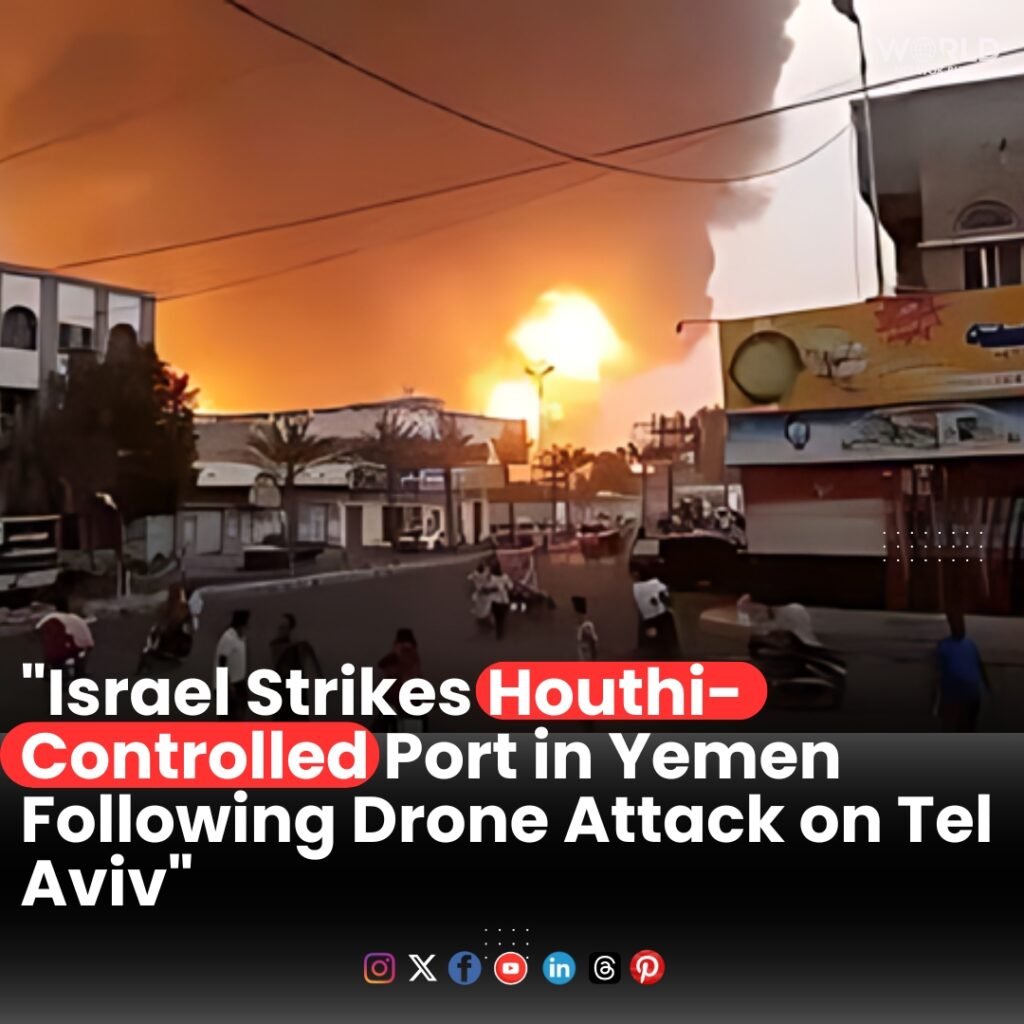Add Your Heading Text Here
Lorem ipsum dolor sit amet, consectetur adipiscing elit. Ut elit tellus, luctus nec ullamcorper mattis, pulvinar dapibus leo.

The recent exchange of gunfire between Israel and the Houthi rebels in Yemen highlights the erratic nature of regional tensions within the intricate web of Middle Eastern geopolitics. The series of events started with a fatal attack on Tel Aviv, Israel, that was claimed by the Houthi organization, which Iran supports. Israeli attacks on oil facilities in Yemen’s west coast port were launched in quick reprisal, resulting in several fatalities and injuries.
Amid long-standing regional animosities and geopolitical manoeuvres, the escalation took place. According to Al Masirah TV, which is controlled by the Houthis, Israeli airstrikes targeted oil plants, causing severe injuries to 87 people, many of whom had severe burns, and tragically taking at least three lives. In addition to making people’s suffering worse, the aftermath of such attacks feeds the decades-long cycle of violence and retaliation that has characterized the area.
The repercussions of these incidents are disastrous for the individuals who are immediately impacted. Families grieve for loved ones died in the strikes, while medical facilities and emergency personnel work in difficult circumstances to care the injured. The number of people killed in the crossfire emphasizes how urgently diplomatic measures to lower tensions and stop more violence are needed.
The conflicts between Israel and the Houthis are a reflection of larger strategic calculations and alliances on the geopolitical scene. Israel sees the acts of the Houthi group as a danger to its national security since it has traditionally been considered a crucial partner of Western countries in the area. Supported by Iran, the Houthis saw Israeli attacks as a component of a larger strategy aimed at undermining their rights and sovereignty in Yemen.
In addition to the direct military activities and their aftermath, the battle highlights more profound regional fault lines. There has been controversy around Iran’s backing of the Houthi rebels in Yemen, which has ramifications for both the domestic stability of Yemen and the larger regional dynamics including Saudi Arabia and other Gulf states. The battle has attracted a wide range of foreign players, all of whom have different goals and interests, making it more difficult to achieve a lasting peace.
In the middle of the mayhem and uncertainty, humanitarian issues are very important. After years of civil conflict and a humanitarian catastrophe, Yemen today confronts more difficulties as a result of the latest bombings. Attacks against vital infrastructure, such oil facilities, not only cause economic disruption in the area but also worsen the already poor humanitarian situation by restricting access to resources and services.
International bodies have called for moderation and diplomacy in response to the increasing violence. All parties concerned must put the safety of civilians first and abide by international humanitarian law, according to the United Nations and other humanitarian organizations. In order to lessen the suffering of those trapped in conflict zones, efforts must be made to mediate ceasefires and provide humanitarian access.
The human cost of conflict is at the core of the issue. There are real-life accounts of regular individuals whose lives are irrevocably changed by violence and displacement behind the headlines and geopolitical assessments. While children grow up in circumstances damaged by violence and insecurity, families that have been uprooted from their homes search for safety and stability amidst the upheaval.
The requirement to put discussion above dissension, collaboration above confrontation, and the defense of human rights above all else is still evident as the international community struggles to understand the intricacies of the Middle Eastern problems. The cycle of violence and suffering can only be stopped by persistent diplomatic efforts and a dedication to peacebuilding, opening the door for a future in which everyone in the area may live in dignity and security.
The latest confrontations that have broken out in Yemen between Israel and the Houthi rebels highlight how urgently a comprehensive and inclusive strategy for addressing regional crises is needed. The human cost of violence must continue to be the primary focus of international efforts to advance peace, stability, and justice in the Middle East and beyond, above and beyond military measures and strategic considerations.






